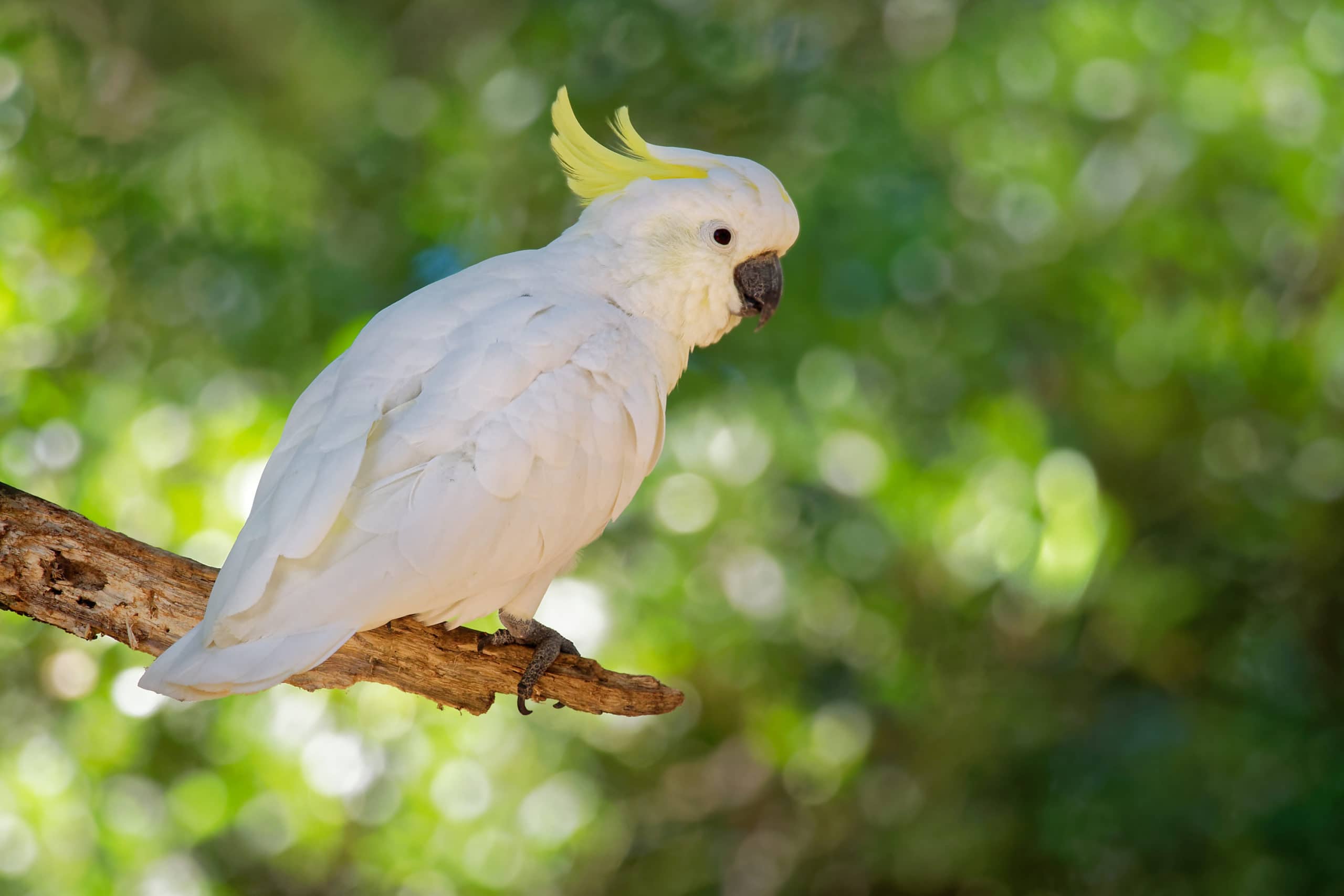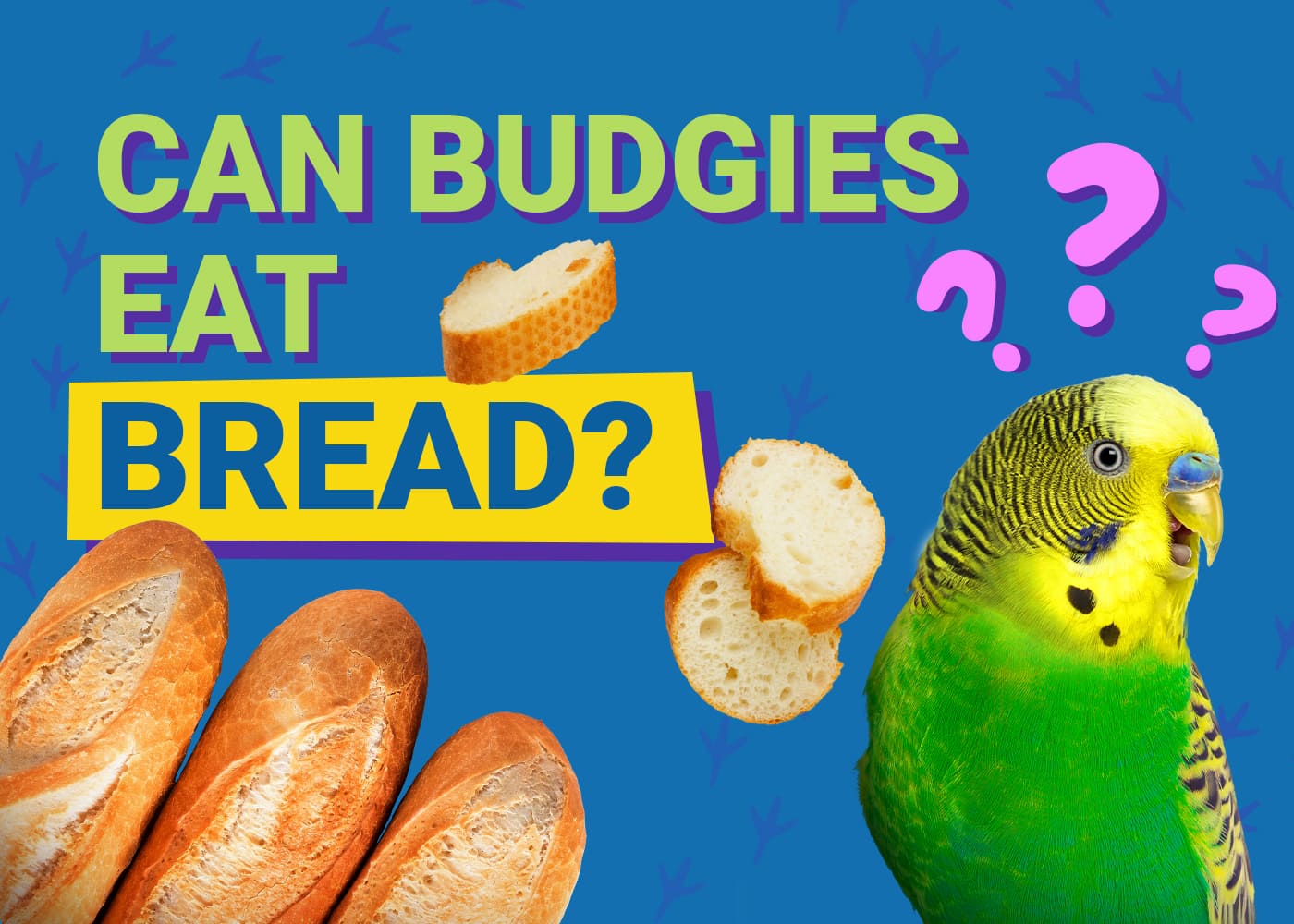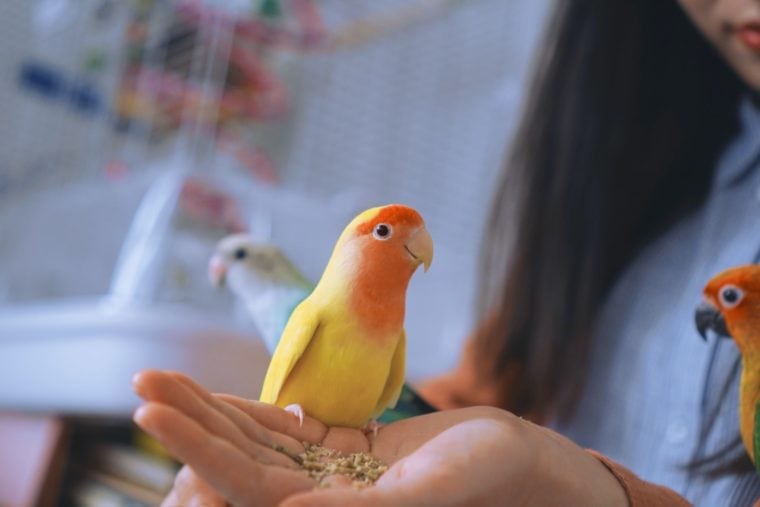
According to research from 2018, over 7.5 million birds are pets in the United States alone1. Unless you’ve had a pet bird in the past, you can’t imagine just how great of a companion they can be. When kept happy and healthy, these intelligent and beautiful creatures can add joy and meaning to their owners’ lives.
If you’re considering adopting a bird for the first time, you will want to keep reading. We’ll reveal the top nine benefits of owning a pet bird, so you know exactly what you’re signing up for before you bring your new avian friend home.
The 9 Top Benefits of Owning a Pet Bird
1. Long Lifespans
Many companion birds have very long life spans, especially compared to other common household pets like dogs and cats. This long lifespan means you won’t have to deal with the grief of losing your beloved pet after just a few years together.
Average Lifespan of Popular Pet Birds
| Species | Average Lifespan in Captivity |
| African Grey Parrot | 40–60+ years |
| Amazon Parrot | 25–75+ years |
| Budgies (and Parakeets) | 5–18 years |
| Caiques | Up to 50 years |
| Canaries | 10 years |
| Cockatiels | 10–15 years |
| Cockatoos | 20–60 years |
| Conures | 10–30+ years |
| Doves | 20+ years |
| Finches | 5 to 9 years |
| Lorikeets | 10–30 years |
| Lovebirds | 10–25 years |
| Macaws | 50–75 years |
| Parrotlets | Up to 20 years |
| Quaker Parrots | Up to 30 years |
Of course, it is essential to consider your own age when adopting a pet bird. If you’re of a certain age, there’s a good chance your pet will outlive you. Do you have a plan in place if you pass away before your bird? Who will take care of them when you’re gone or aging?

2. High Intelligence
Birds are highly intelligent pets. With enough patience, many bird species can be taught to talk and sing. Particularly brilliant species, such as African Grey Parrots, can not only parrot what they say but use words in context, asking for things, and telling their owners how they feel. Some species can also train themselves to repeat sounds from inanimate objects such as doorbells, car honks, and other animals you have in the home.
It’s not just a bird’s ability to imitate sounds and learn words that make them intelligent, though. Studies suggest that some parrot species understand object permanence, complex social cognition, and mirror self-recognition.
3. Minimal Grooming Requirements
Pets like dogs and cats have high grooming needs. Some breeds will need to see the groomer every month to keep their coats in tip-top shape. Others will need frequent baths to stay clean and to keep bugs like fleas at bay.
Birds, on the other hand, are naturally hygienic creatures. They preen their feathers every day to keep them looking their best. All you really need to do as a bird owner to help your pet is a quick nail trim occasionally. When given access to a bath, your bird will bathe itself.
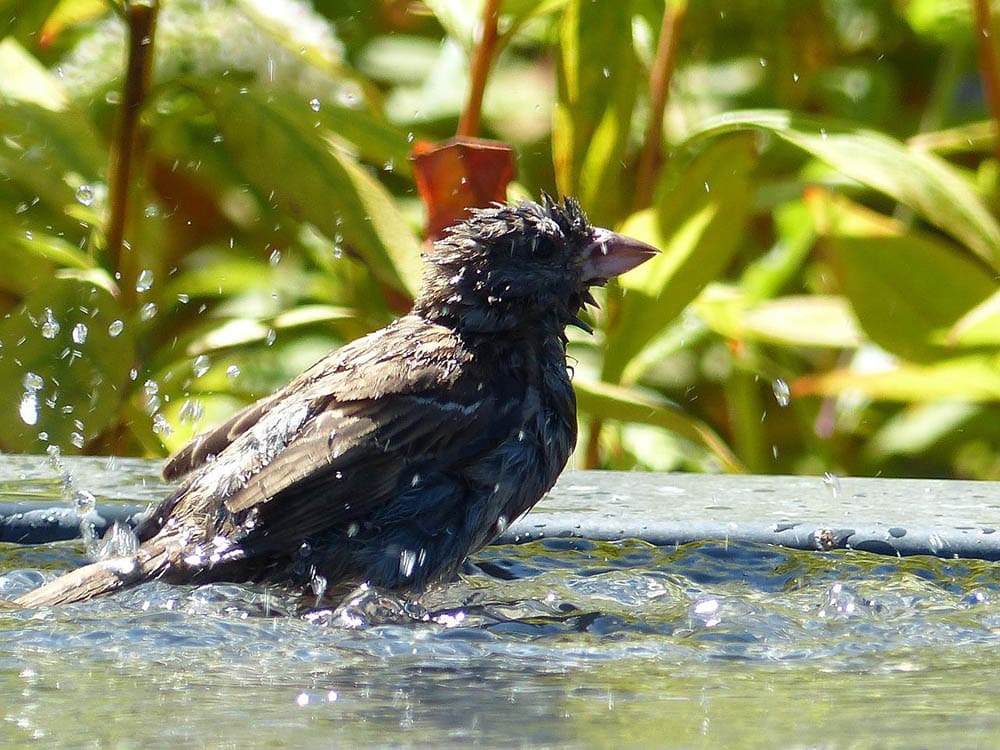
4. Highly Affectionate
You might think birds are aloof pets because the ones you see in the wild aren’t the most affectionate. A wild bird will flee the moment it senses a threat. With proper socialization and training, though, a companion bird can be just as loving as a cat or a dog. Some birds may even become so attached to their owners that they can tag along on daily trips to the store.
Birds form close bonds with their humans, and some even consider them to be “flock mates,” calling for them when they’re out of sight.
5. Beautiful
Birds are absolutely beautiful animals!
Sun Conures, for example, are medium-sized parrots that combine nearly the entire rainbow of colors. Eclectus Parrots have beautifully colored plumage, too. They have sexual dimorphism that separates the males from the females. Male Eclectus Parrots are mostly bright green, while females are bright red with deep purple markings.
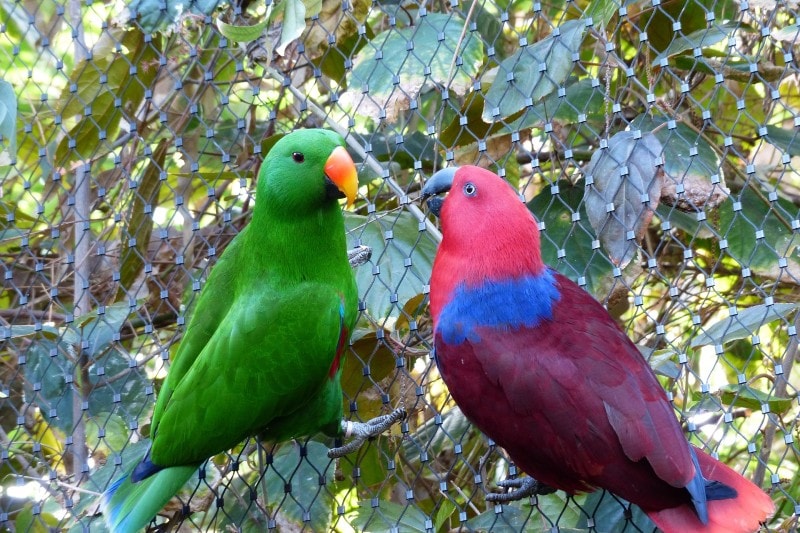
6. Inexpensive to Feed
Birds don’t eat much food, especially when we compare them to other household pets like dogs. Even the biggest bird species will only eat a small volume of food daily.
Companion birds need a diet of commercially made pellets and fresh fruits and vegetables. The highest quality and most nutritious pellets are still cheaper, pound for pound, than the protein-rich diets cats and dogs require. As for fresh produce, set aside a small portion of the fruit and veggies you eat daily for your bird’s meal.
7. Don’t Need a Lot of Space
Smaller bird species, such as canaries or finches, are great for potential bird owners who live in small homes or apartments. Their cages aren’t enormous so that they will fit nicely into nearly any space.
Keep in mind that the bigger the bird is, the bigger cage it will need. For example, the minimum cage size for a large parrot, like an African Grey, is 36 inches x 24 inches x 48 inches, while a finch can live happily in a cage that’s 30 inches x 18 inches x 18 inches.
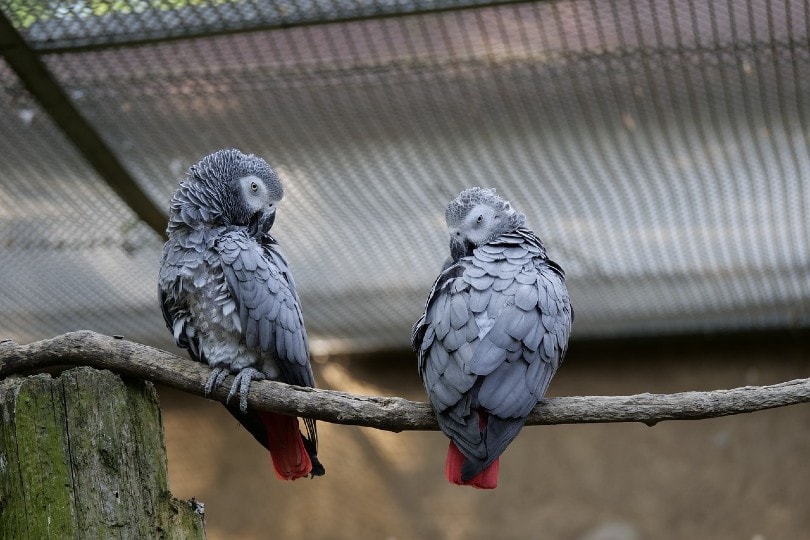
8. Low Maintenance
Most dog breeds need physical activity every day to stave off boredom. The larger the breed, the more exercise is necessary. Some dogs will need up to two hours of activity a day, which can be tough to make time for if you work full-time or have other responsibilities.
Birds don’t need to be walked every day and are quite self-sufficient. But just because they are lower maintenance than dogs and cats doesn’t mean you can leave them alone all day. You’ll still need to give them one-on-one attention and give them a chance to stretch their wings daily.
9. Stress Reduction
Did you know that listening to birdsong can positively impact your mental health? Studies show that some bird sounds provide relief from mental fatigue and stress. The restorative effect of birdsong may have to do with human evolution and our genetic preference for nature, including its sights and sounds.
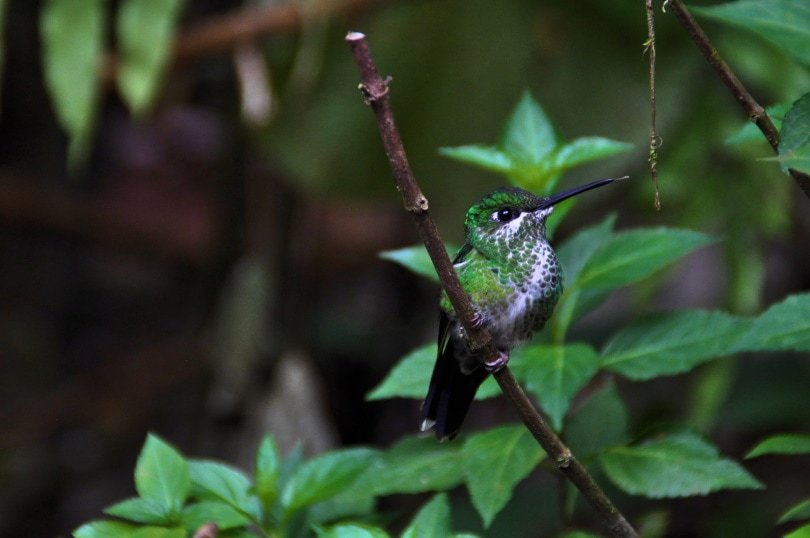
Final Thoughts
As you can see, there are a lot of benefits to owning a pet bird. Bringing home a new feathered friend is not a decision that should be taken lightly. Every member of the family must be on board and willing to put in an effort to keep your new pet happy and healthy.
Featured Image Credit: mf evelyn, Unsplash


